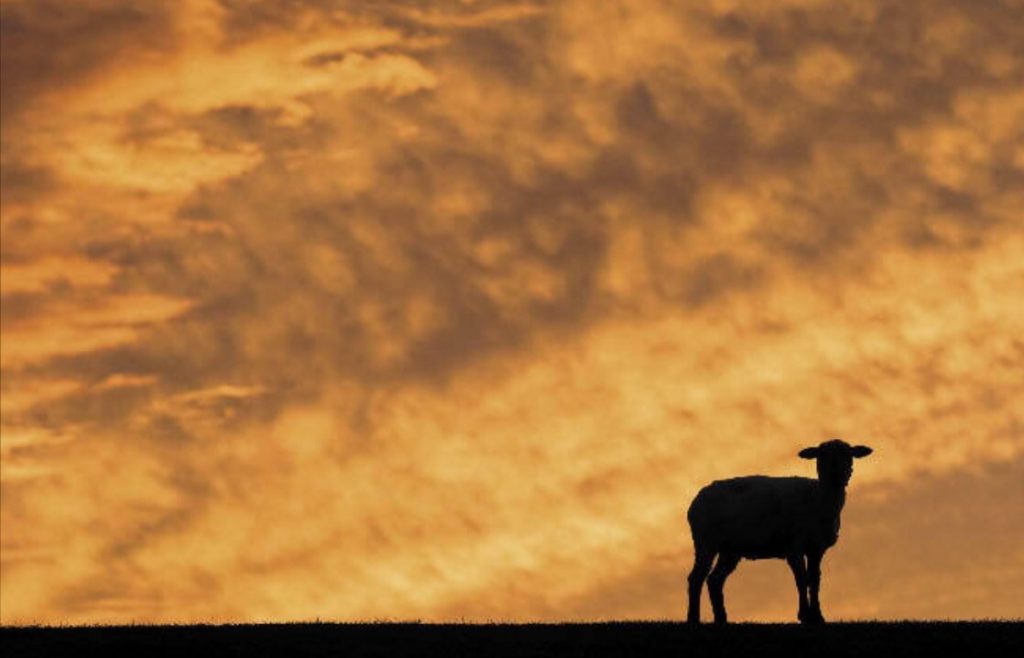
To listen to this reflection as a podcast, click here.
It’s not easy being a lost sheep.
In one of his most famous stories (Luke 15:4-7), Jesus helps us imagine what it might be like to be a shepherd.
“Suppose one of you has 100 sheep and loses one of them. Does he not leave the 99 in the open country and go after the lost sheep until he finds it?”
Tellingly, shepherds from Jesus’ own time would almost certainly have answered, “Not exactly.”
Kenneth Bailey, who spent almost all his life in the Middle East delving into the richness of Bible backgrounds, suggests that his listeners probably expected Jesus to ask a different question – perhaps this one: “Which of you, owning a hundred sheep, if a report came to you that one was lost, would not send a servant to the shepherd responsible and threaten him with a heavy fine if he didn’t find the sheep?” In other words, if something is lost, somebody else is going to have to pay. But Jesus says, “No, think again. You are responsible. You own a hundred sheep and you lose one of them.”
Looking for a lost sheep in Palestine was (and still is) no walk in the park.
The land is extremely dry. Bailey remarks that more than once he witnessed a Holy Land tourist leave his bus, wander off the path with a camera and a bottle of water, only to be brought back two hours later on a stretcher.
Most shepherds who are alone in such conditions will think to themselves: “I hope I find the sheep…and I pray that it’s already dead.” That way the shepherd can bring back an ear or a foot and say, “Here it is. I found it. Job over. We don’t have to do anything else.”
But that’s not what happens in Jesus’ parable: “And when he finds it [very much alive], he joyfully puts it on his shoulders and goes home.”
I grew up in a church where there was a beautiful painting of Jesus with a sheep draped around his neck. It never occurred to me to wonder what that must feel like. Imagine walking on a wilderness path with an awkward, heavy animal – its four feet bound together – wrapped like a pretzel around your shoulders.
Restoring the one who is lost – whether the new arrival in the neighborhood who doesn’t yet know anyone, or the man who is disillusioned by organized religion, or the woman who’s been rejected by friends and family, or the teenager ready to give up on life – almost always requires significant commitment. There may be a high price to pay.
But the shepherd who has on his or her heart what the Good Shepherd has on his heart is willing to search, find, and restore.
The parable ends with this interesting twist: The shepherd “calls his friends and neighbors and says, ‘Rejoice with me.’”
To us, it might seem strange to dial up everyone on the block and announce, “You’ll never believe it, but I finally found my paint roller. It was right behind my snow shovel the whole time! How about coming over for some burgers this evening to celebrate?”
It turns out that in Palestine at least 10 to 20 families would jointly own a flock of sheep. So if one sheep became lost, it was everyone’s loss. And if that sheep were found, it became everybody’s reason to rejoice.
Jesus is saying that God’s heart always goes out to the one who is most in need of help, most in trouble, or most neglected. And the closer we ourselves draw to God, the more we will feel a stab of happiness when something wonderful happens to someone else – even if we don’t get any special credit or attention.
Jesus says in verse seven: “I tell you that in the same way there will be more rejoicing in heaven over one sinner who repents than over ninety-nine righteous persons who do not need to repent.”
That’s because God has engineered the universe in such a way that the best parties always happen when the one who is “out there somewhere” finally makes it home.
In the kingdom of God, after all, everybody counts.
And we always count by ones.
